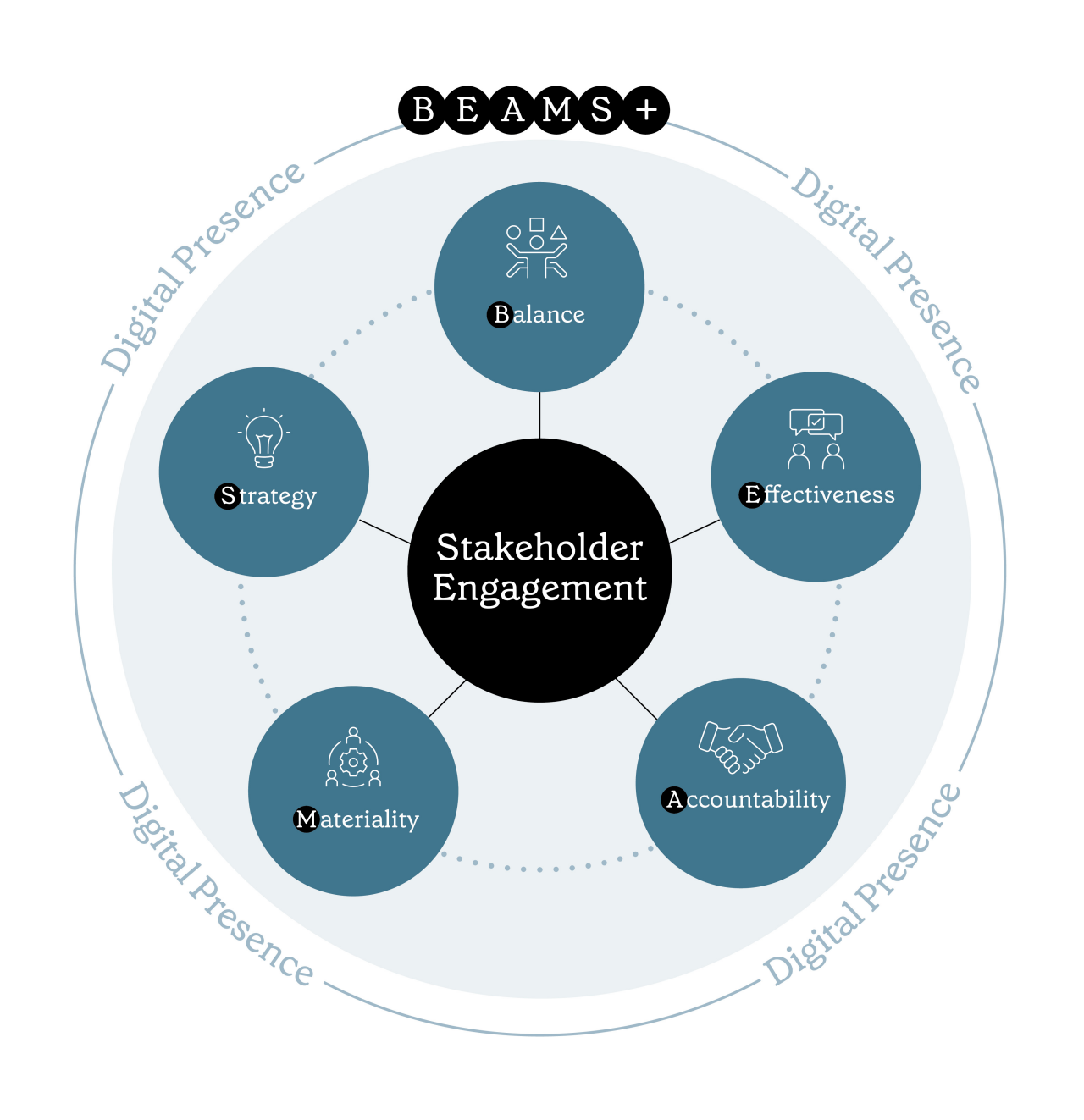
“To succeed in the long-term, directors and the companies they lead need to build and maintain successful relationships with a wide range of stakeholders. These relationships will be successful and enduring if they are based on respect, trust and mutual benefit.”
Gone are the days when a company could get by with minimal engagement with select stakeholder groups. As regulations around environment, social and governance metrics increase, the voices of stakeholders have risen in prominence. Companies are increasingly obligated to engage with a wider range of stakeholders through two-way dialogue and consistent interaction. Even the needs of “silent” stakeholders like nature and the environment are increasingly represented in corporate decision making.
Communication: The importance of maintaining regular and timely communications with stakeholders is highlighted. Consistency in engagement helps build trust and understanding, ensuring that all stakeholders are well-informed and aligned with the company’s goals and strategies.
Engagement channels: Establishing effective channels for stakeholders is essential. Companies are urged to create diverse and accessible mechanisms for engagement. This includes both traditional channels and modern platforms to reach a broader audience.
Transparency: Regulatory authorities mandate comprehensive disclosure requirements to ensure transparency, protect investors and uphold the integrity of the financial market. Transparency and accountability are fundamental principles in stakeholder engagement and integral in building trust. Companies are encouraged to be open and accountable in their interactions, allowing stakeholders to make informed decisions and assessments about the company’s performance.
view the annual report as an opportunity to communicate past performance and future strategic direction
discuss sustainability across their annual reports, beyond the dedicated section
view investors as the primary audience of the annual report
acknowledge that different stakeholders have different information needs
embed sustainability within their overall brand story
The research, grounded in Black Sun Global's BEAMS+ principles, assessed 224 companies in UK and chosen European companies using 97 questions. Public disclosures, annual reports, sustainability reports, company websites, and social media were analysed to evaluate stakeholder engagement practices for investors, employees, customers, suppliers, and the community. Additionally, an online survey garnered over 70 responses from our global client base, including board members and investors.

Our analysis showed that annual reports are expanding in length while remaining largely compliance-focused. Primarily targeting investors and regulators, they often prioritize historical financial performance and future strategic direction. The annual report's effectiveness in meeting the needs of a broader stakeholder audience is increasingly questioned.
Sustainability is increasingly integrated into annual reports. While standalone sustainability reports remain prevalent, particularly in Europe, the impending CSRD mandates are expected to reduce their prevalence. Companies in the Netherlands demonstrate early leadership in CSRD adoption compared to other European markets.
Respondents recognize the diverse sustainability information needs across stakeholder groups. While some believe the annual report can address these needs to a degree, its limitations are evident. The new CSRD and ISSB standards are seen as potential solutions, yet concerns persist about their ability to fully satisfy the specific sustainability information requirements of certain stakeholder segments.
Companies are expanding their sustainability communication beyond annual reports to reach diverse stakeholders. While investors remain a primary audience, a multi-channel approach is emerging. However, effectively tailoring information to specific stakeholder needs remains a challenge.
As societal expectations evolve, companies must view stakeholder engagement as a strategic imperative. The "Aligning stakeholders in a new business landscape" report offers actionable insights and recommendations for companies to enhance their stakeholder engagement practices, ensuring trust and support from key stakeholders for sustainable success.
Explore our thinking and learn from global thought leaders through
our blogs, podcasts, webinars, and events.